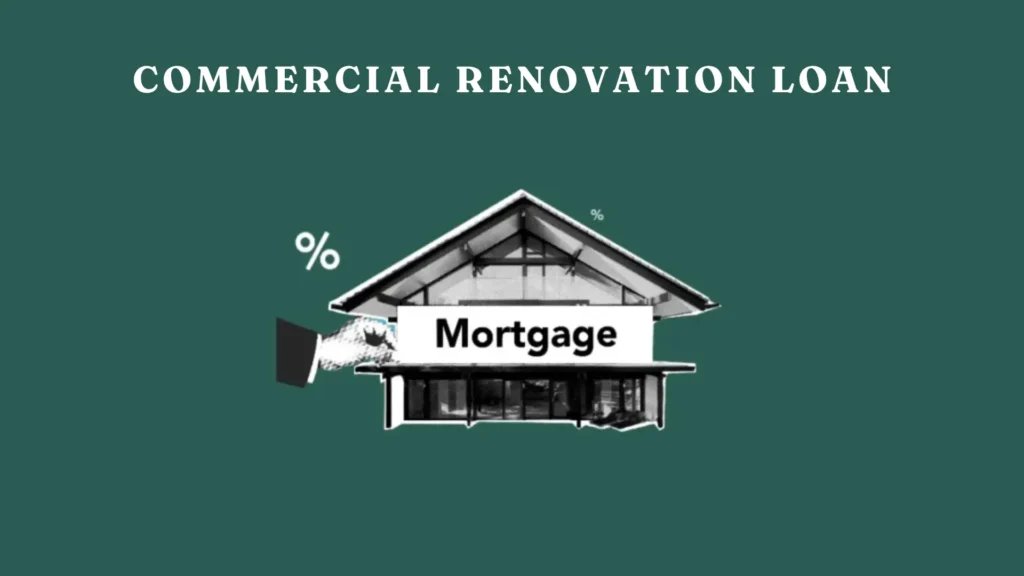The two types of loans commonly used in financing property are commercial loans and residential loans. These loans vary in terms of purpose, terms, and borrower requirements. In order to have informed financial decisions, knowledge of the differences between the two types is necessary. This article presents the characteristics, benefits, drawbacks, and the main differences of commercial and residential loans.
What is a Commercial Loan?
Commercial loan refers to loan financing particularly for business purposes. Commercial loans may be utilised in buying, refinancing, or developing commercial properties. These may include office buildings, retail spaces, industrial warehouses, or multi-family housing. Commercial loans could also fund operations within a business, equipment, or other capital requirements.

Types of Commercial Loans
These loans are available for an amount and duration. Often, term loans are of fixed or floating interest rate. Term loans are given to purchase a commercial real estate or to finance business growth.
Lines of Credit: A flexible line of credit where businesses draw funds up to a predetermined limit as they need to pay interest only on the amount drawn.
Commercial Mortgages: This is a secured loan solely for the purchase or refinance of commercial real estate. Typically, they have a short term and higher interest than residential mortgages.
SBA Loans: These are the loans guaranteed by the Small Business Administration for small business ventures and usually come with more favourable terms. Among the terms are smaller down payments and longer payment terms.
What is a Residential Loan?
Definition of Residential Loans
Residential loans are essentially home loans or mortgages that finance residential properties. Typically, these loans enable numerous individuals and families to buy homes, condos, or multi-unit dwellings that they will live in. Major purpose of residential loans- homeownership.
Types of Residential Loans
Fixed-Rate Mortgages: These are fixed in interest rate and monthly payments for the life of the loan, which can range from 15 to 30 years. This gives a fixed payment schedule and stability against fluctuations in interest rates.
Adjustable-Rate Mortgages (ARMs): The loans have an interest rate that changes periodically based on market conditions, often starting with a low initial rate that increases over time.
FHA Loans: They are insured by the Federal Housing Administration. These loans target low-to-moderate-income borrowers with more relaxed credit requirements and the capacity for lower down payments.
VA Loans: Guaranteed by the U.S. Department of Veterans Affairs, VA loans are available to eligible veterans and active-duty service members. These loans feature friendly terms, such as no down payment and no PMI.
Differences between Commercial and Residential Loans
-
Purpose of the Loan
Commercial and residential loans differ basically in their purpose:
Commercial Loans: It is generally used for running a business, investing in property, or developing real estate. All the expenses concerning the development of a business and property can be covered under this type of loan.
Residential Loans: Specifically used to finance a house for residential purposes. Here, it is mainly about helping people and families acquire and stay in residential property.
-
Loan Sizes
Commercial and residential loan sizes vary. Commercial loan sizes are often larger as opposed to residential loans since commercial properties are costlier and businesses need more amounts to finance their operations. The minimum loan size might be tens of thousands in terms of dollars, though for commercial loans, loans might reach millions of dollars. Residential loans are commonly much smaller. Most home mortgages vary between $100 000 and $500,000 depending on the specific location and type of residential property.
Interest rates and terms will vary depending on what kind of loan is being pursued, but generally, loans in the commercial category are always higher in interest compared to residential loans because lenders risk more. Loan terms can be as short as five to twenty years or can balloon at the end of the loan.
-
Down Payment Requirements
It is quite possible that for down payments, requirements change:
Commercial Loans: They usually offer a high down payment rate, ranging from 20% to 30%. This would depend on both the lender and the form of loan.
Residential Loans: Typically allow for smaller down payment, with down payments so low as to 3% for traditional loans down to 0% for a VA loan.
-
Qualifying Requirements:
Commercial Loans: Commercial lenders essentially look at how healthy or unhealthy the business is-in terms of the credit report, income level, cash inflow, cash out-flows, existing debt, all that stuff-and also where the property lies in being able to potentially generate rental income.
Residential Loans: Lenders rely more on the borrower’s personal credit history, income stability, and debt-to-income ratio. Approval is generally easier, especially for government-backed loans such as FHA and VA loans.
-
Risk Assessment
Lenders evaluate risk differently for commercial and residential loans:
Commercial Loans: Have a higher risk for lenders because of the uncertainty of business income and market conditions. This risk is reflected in tighter qualification standards and higher interest rates.
Residential Loans: These are less risky since they are secured by the income of the borrower and his or her personal credit. Lenders may, therefore, offer more favourable terms on residential loans.
-
Loan Repayment Structure
The two types of loans have different repayment structures:
Commercial Loans: They can be more complex, including interest-only payments, balloon payments, or variable rate adjustments tied to market conditions.
Residential Loans: Such loans are usually coupled with simple fixed monthly payments usually through amortisation of the payback period, therefore making the money easier for consumers to budget.
Also Read: Commercial Renovation Loan – Unlock Funding for Your Project
Advantages of Commercial Loans
Business Expansion Avenues
There are business loans whose capital is obtained for the purpose of investing from avenues of business expansion such as expanding operations, buying updated equipment, or acquiring other properties.
Tax Advantages
Commercial loan interest payments may be tax-deductible, thus reducing the taxable income and tax liability of businesses.
Property Investment Potential
Commercial real estate investment can provide high returns in the form of rental income and property appreciation. Commercial loans make it possible for investors to take advantage of these opportunities.
Benefits of Residential Loans
Homeownership
Residential loans help people to attain homeownership, a step for many and important for long-term financial security.
Less Expensive Interest Rates
Residential loans are cheaper compared to commercial loans because of relatively low interest rates.
Government Backed Programs
There are several government-backed programs that complement residential loans by making them more accessible to low-to-moderate-income borrowers.
When to Use Commercial Loan?
Business Expansion: To expand operations or to acquire equipment or buy more properties.
Property Investment: For any investor who wants to invest in commercial real estate either for rental income or long-term appreciation.
Operational Costs: It is to cover operational costs or other incidental expenses.
When to Use Residential Loan?
For First-Time Homebuyers: This is best for individuals and their families when purchasing their first home.
Refinancing: Homeowners want to refinance the currently existing mortgage, either for a lower rate of interest or to uncap home equity.
For Personal Purpose: When people buy a house for his or her personal use or occupation.
Conclusion:
The differentiation, therefore, should be understood between commercial and residential loans to avoid financial missteps. Commercial and residential loans both serve different purposes but with different benefits and disadvantages. For a business owner looking to finance commercial real estate or an individual who wants to buy a house, the need to compare and align options according to financial goals will be a determinant of success.
